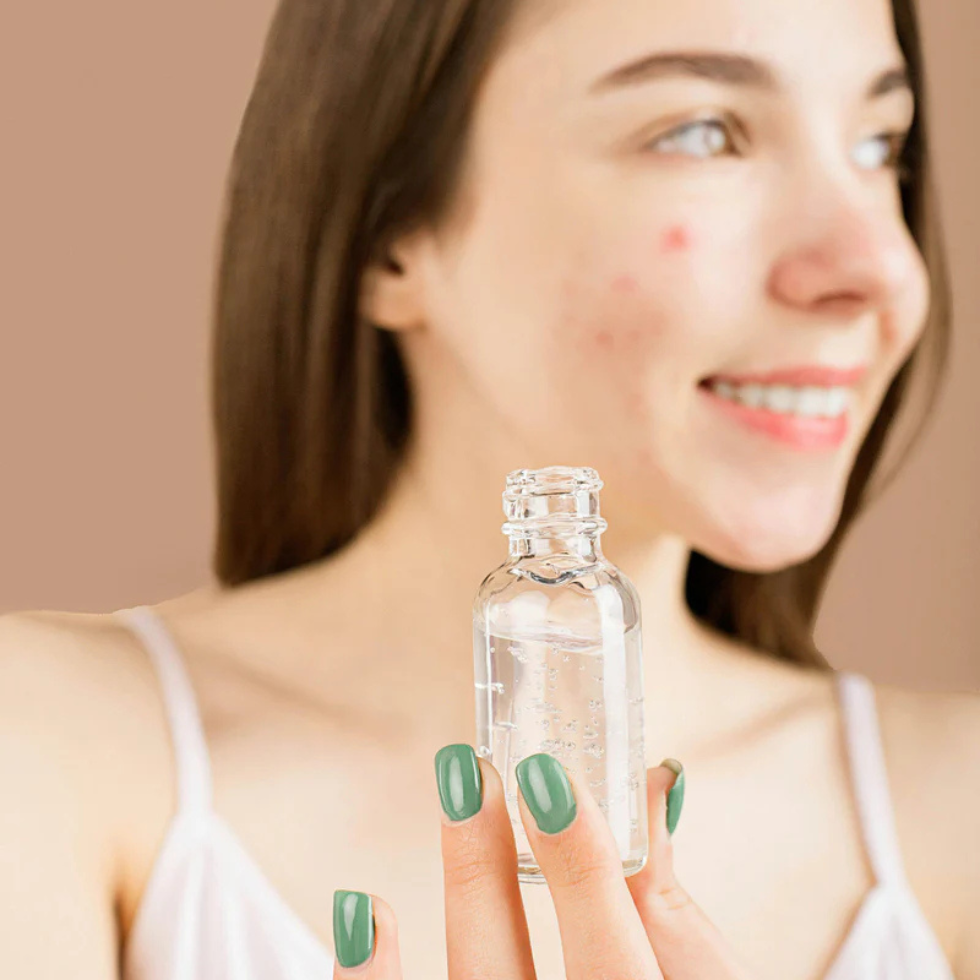Oily skin is a common skin concern that affects many people, regardless of age. Excessive shine, enlarged pores, blackheads, acne… these visible signs are often caused by an overproduction of sebum. To maintain healthy skin and minimize imperfections, it's essential to adopt a suitable skincare routine. In this article, discover best practices, recommended products, and habits to avoid to regulate excess sebum and effectively prevent blemishes.
Understanding oily skin and the causes of blemishes
What is oily skin?
Oily skin is characterized by an excessive production of sebum by the sebaceous glands. While sebum is essential for protecting the skin and maintaining its hydration, an excess can clog pores and promote the formation of blackheads, pimples, and acne. This skin type typically presents with:
- A persistent shine, especially on the T-zone (forehead, nose, chin).
- Enlarged pores.
- Uneven skin texture.
- An increased tendency towards blemishes and acne.
The main causes of excess sebum and blemishes
Several factors can cause an overproduction of sebum and the appearance of blemishes:
- Hormonal factors: hormonal fluctuations , particularly during adolescence, pregnancy or the menstrual cycle.
- Stress : Stress increases the production of cortisol, which stimulates the sebaceous glands.
- Unbalanced diet : excessive consumption of sugar, dairy products or ultra-processed foods.
- Inappropriate cosmetics : products that are too aggressive or not suited to the skin type.
- Environmental factors : pollution, humidity, heat.
Understanding the origin of imperfections is essential to establishing an effective routine.
Daily skincare routine to prevent blemishes
Cleaning: the essential first step
A good cleansing routine removes excess sebum, impurities, and pollution residue that can clog pores. For oily skin, opt for:
- A gentle, non-comedogenic cleansing gel , suitable for oily or acne-prone skin.
- Avoid harsh soaps that stimulate sebum production through a rebound effect.
- Cleanse your face morning and evening , and don't forget to remove your makeup in the evening, even if you're not wearing makeup.
Hydration: a step not to be neglected
Contrary to popular belief, oily skin needs hydration. A lack of hydration can lead to an overproduction of sebum. Opt for:
- A light moisturizing cream based on mattifying ingredients such as niacinamide, salicylic acid or zinc.
- Targeted anti-blemish serums , rich in purifying active ingredients .
- Skincare products containing hyaluronic acid to hydrate without leaving a greasy residue.
Sun protection: an ally against imperfections
The sun can temporarily dry out pimples but leads to a rebound effect with a resurgence of blemishes after exposure. Use:
- A non-comedogenic SPF 30 or 50 sunscreen specially formulated for oily skin.
- A fluid or gel texture, which limits the greasy effect.
Additional weekly treatments to limit excess sebum and acne
Scrubs: gentle exfoliation
Exfoliation helps remove dead skin cells that clog pores and contribute to blemishes. Opt for:
- A chemical scrub based on fruit acids (AHA, BHA) rather than a mechanical scrub.
- A frequency of 1 to 2 times per week .
- Treatments with salicylic acid for its keratolytic and anti-inflammatory action.
Purifying masks: regulating excess sebum
To complete the routine, absorbent masks are very effective:
- Green clay masks or activated charcoal .
- Apply once a week to avoid drying out the skin.
- Combine with moisturizing masks if needed to maintain skin balance.
Localized treatments: acting directly on imperfections
In case of isolated pimples or persistent acne:
- Use spot treatments with salicylic acid, benzoyl peroxide or tea tree oil .
- Consult a dermatologist for more targeted treatments if the imperfections are severe.
Conclusion: a suitable routine for balanced, blemish-free skin
The key to regulating excess sebum and preventing blemishes lies in consistency and choosing the right products. Cleansing without irritation, moisturizing without weighing down the skin, protecting it from the sun, and incorporating targeted treatments will help you achieve healthier, more balanced skin. If you have persistent acne, don't hesitate to consult a healthcare professional for personalized guidance.
Adopting a skincare routine adapted to oily skin is the first step towards clear, luminous skin, free from imperfections.




Leave a comment
All comments are moderated before being published.
This site is protected by hCaptcha and the hCaptcha Privacy Policy and Terms of Service apply.